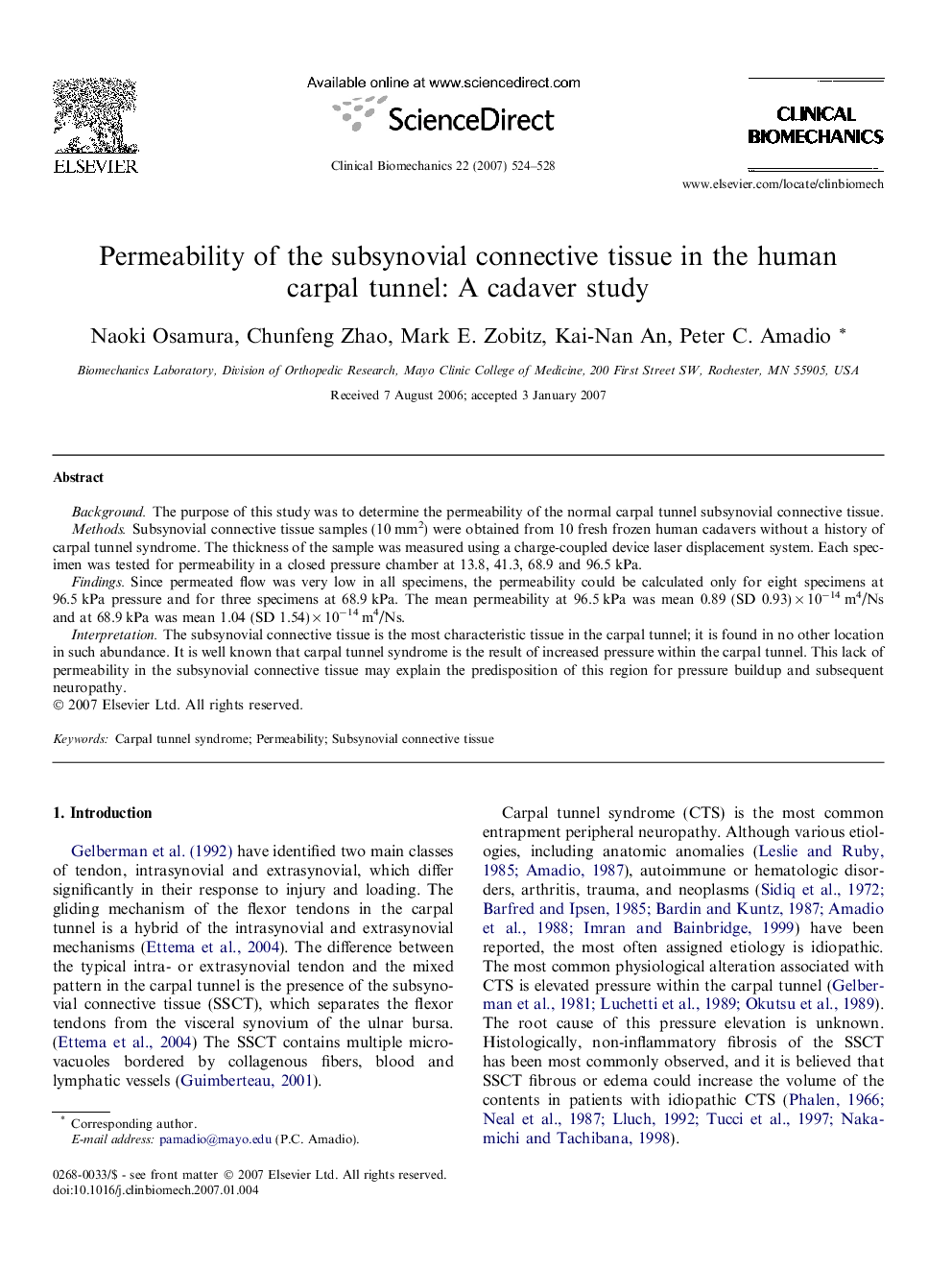| Article ID | Journal | Published Year | Pages | File Type |
|---|---|---|---|---|
| 4051364 | Clinical Biomechanics | 2007 | 5 Pages |
BackgroundThe purpose of this study was to determine the permeability of the normal carpal tunnel subsynovial connective tissue.MethodsSubsynovial connective tissue samples (10 mm2) were obtained from 10 fresh frozen human cadavers without a history of carpal tunnel syndrome. The thickness of the sample was measured using a charge-coupled device laser displacement system. Each specimen was tested for permeability in a closed pressure chamber at 13.8, 41.3, 68.9 and 96.5 kPa.FindingsSince permeated flow was very low in all specimens, the permeability could be calculated only for eight specimens at 96.5 kPa pressure and for three specimens at 68.9 kPa. The mean permeability at 96.5 kPa was mean 0.89 (SD 0.93) × 10−14 m4/Ns and at 68.9 kPa was mean 1.04 (SD 1.54) × 10−14 m4/Ns.InterpretationThe subsynovial connective tissue is the most characteristic tissue in the carpal tunnel; it is found in no other location in such abundance. It is well known that carpal tunnel syndrome is the result of increased pressure within the carpal tunnel. This lack of permeability in the subsynovial connective tissue may explain the predisposition of this region for pressure buildup and subsequent neuropathy.
